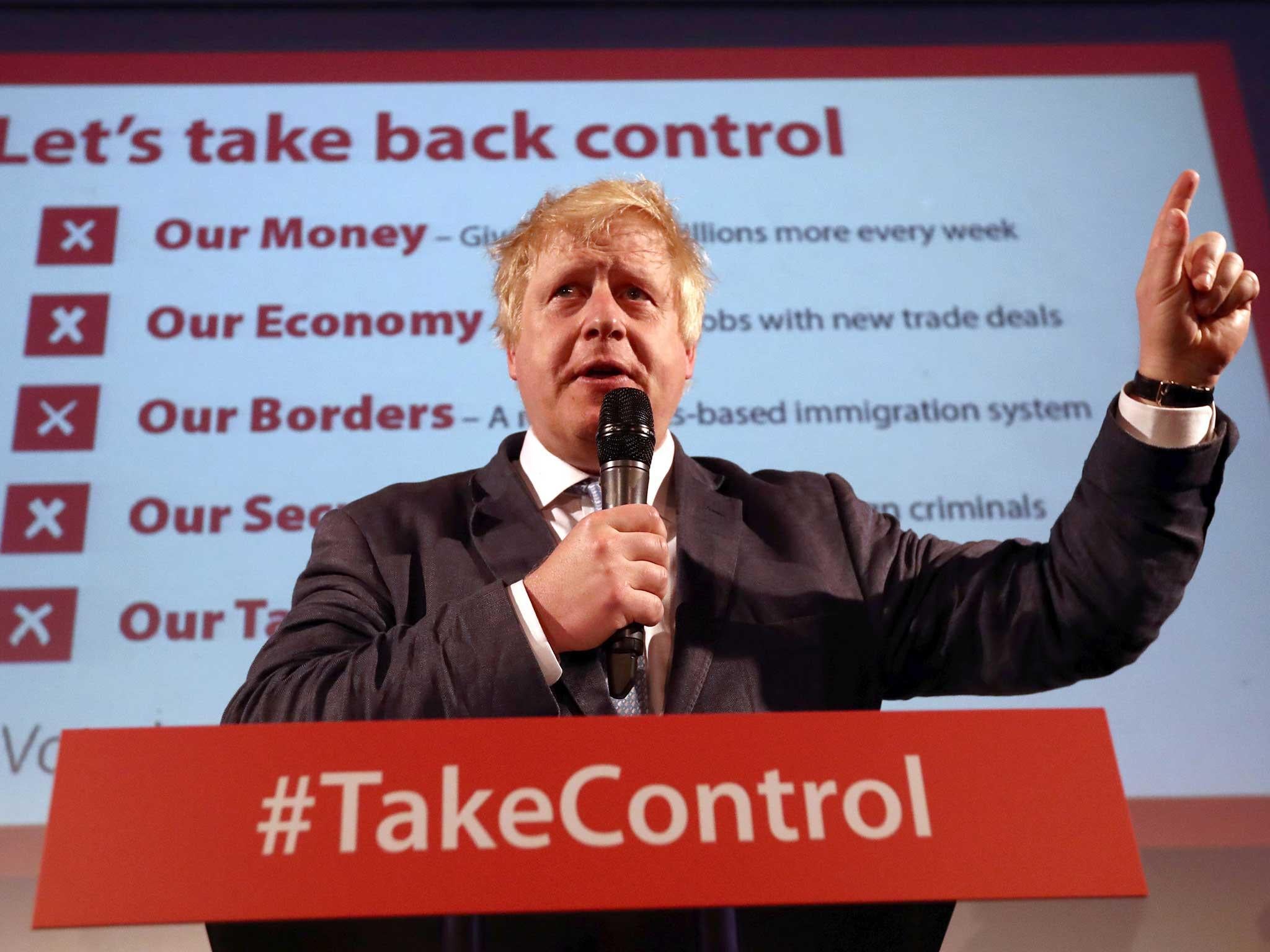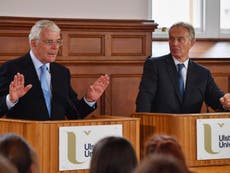Wondering why Boris Johnson keeps mentioning bendy bananas and Brexit – there's a simple explanation
People are getting their facts confused about Brexit, and this might be a nifty trick being played on us all. Just look at Boris and his bananas


“Just give us the facts, and we’ll decide”. That’s been the plea from the public throughout the EU Referendum campaign.
If only it was that simple. Despite the best efforts of many organisations to present a fair reflection of sound evidence, the picture we’re getting is that the facts are messy and contested.
Some things are known and relatively undisputed – and as our new survey for UK in a Changing Europe shows, we get some of them largely right. We know we pay in more than we get out of the EU, and we’re pretty clear that Europe is our most important export market.
But many of us are very wrong on the biggest issues, those that we say will settle our vote: immigration, the economy and sovereignty.
On immigration, our average guess is that 15 per cent of the UK population is an EU immigrant, when the real figure is a third that - at 5 per cent. And those who want to leave the EU overestimate more: leave voters think 20 per cent of the UK population, or 14 million people, are EU immigrants when the reality is more like 3.5 million.
On the economic importance of the EU, we significantly underestimate the proportion of investment we get from EU countries: we think it’s 30 per cent of all foreign investment, when it’s actually about half. We think China is nearly as important a UK investor as the EU, when in fact only 1 per cent of our foreign direct investment comes from China.
On sovereignty and control, we’re actually not that bad in spotting where the EU has sole jurisdiction, on things like trade agreements.
But we’re much less clued up on whether UK laws originated from EU regulation. Most of us miss that measures we generally approve of, like statutory paid holiday and a cap on bankers’ bonuses, come from the EU. And one in seven of us believe at least one Euro-myth, from a ban on barmaids showing cleavage to “emulsified high-fat offal tubes”.
And we’re massively wrong on the extent to which Europe draws on aspects of our benefit system, which became a signal issue in David Cameron’s renegotiation with Brussels. The proportion of Child Benefit recipients that live in another EEA country is actually 0.3 per cent. But when presented with options, big chunks of us say it’s 13 per cent, or even 30 per cent - somewhere between 40 and 100 times the actual level.
So why are we so often so wrong – and what does it mean for the campaigns?
We’ve outlined explanations for these sorts of misperceptions before, and many of the same points apply here.
First, we need to recognise that people overestimate what they worry about, as much as worry about what they overestimate: cause and effect run both ways, and therefore answers to these questions should be seen as a very direct indicator of what really concerns us.
This points to a key challenge for the In campaign: we overestimate EU immigration but underestimate our reliance on investment from EU countries. Despite the In camp’s focus on the macro-economic case, our misperceptions suggest many of us are not hearing or believing it.
Second, we know that we remember a vivid story much more than dry statistics. Bendy bananas and other extreme anecdotes stick – it’s not a media effect, it’s how we’re wired to think. So it’s not nearly as ludicrous as it may seem for Boris Johnson to come back to bananas - repeatedly.
The good news for In is that the public are twice as likely to think we will end up voting to stay than to leave. But our predictions for what would happen if we did vote to leave suggest a major problem the In campaign. Most of us are sure that immigration will decline if we leave. We’re nearly as certain that foreign investment from the EU will go down too. But we see relatively little impact on us personally. Only 25 per cent expect to be worse off, with 13 per cent better off and the rest saying either it will be the same or they don’t know.
Many of us accept some macro-economic impact, but we’re not connecting it to our own lives, and attempts to bring it home – that we’ll each be £4,300 worse off if we leave– are still not sticking. But maybe this shouldn’t be a surprise: one clear message that many have taken from the referendum debate is there are no facts about the future.





Join our commenting forum
Join thought-provoking conversations, follow other Independent readers and see their replies